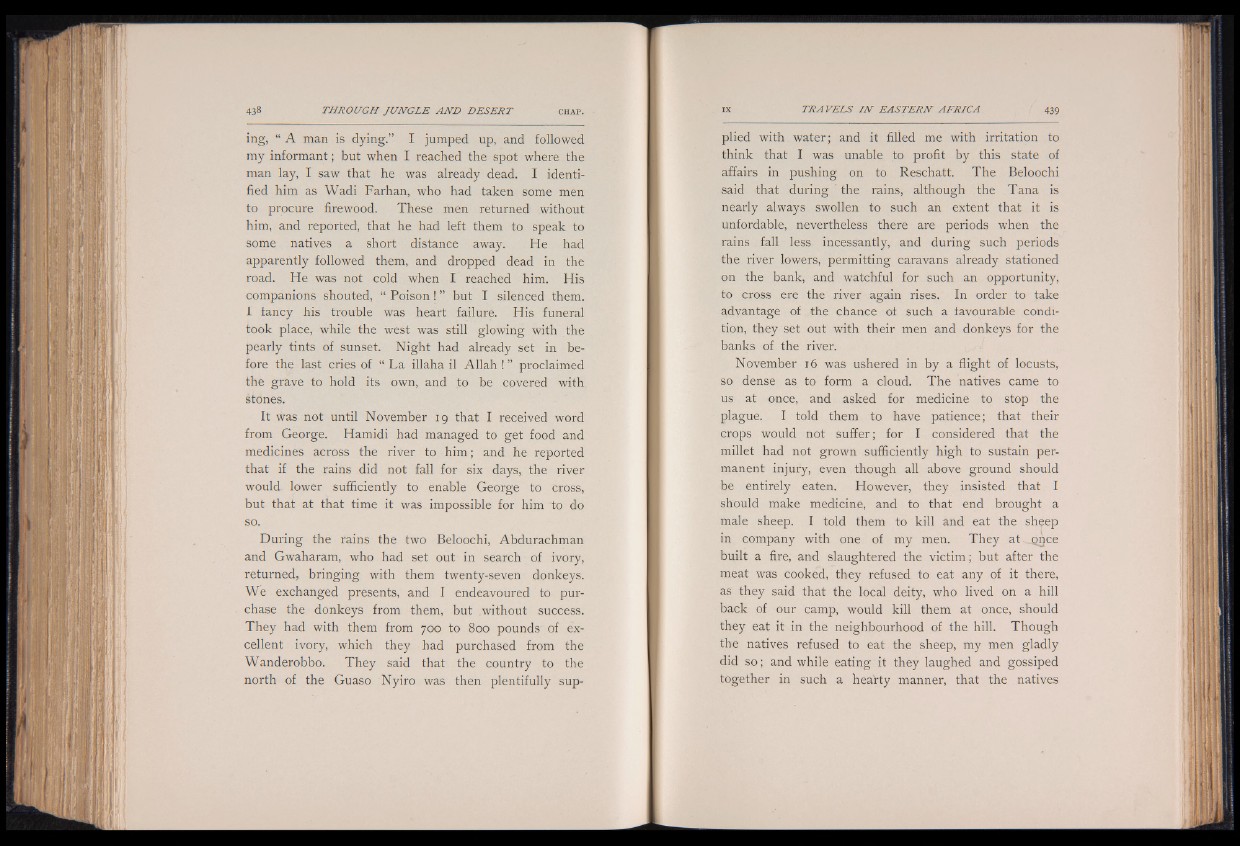
ing, “ A man is dying.” I jumped up, and followed
my informant; but when I reached the spot where the
man lay, I saw that he was already dead. I identified
him as Wadi Farhan, who had taken some men
to procure firewood. These men returned without
him, and reported, that he had left them to speak to
some natives a short distance away. He had
apparently followed them, and dropped dead in the
road. He was not cold when I reached him. His
companions shouted, “ Poison ! ” but I silenced them.
I fancy his trouble was heart failure. His funeral
took place, while the west was still glowing with the
pearly tints of sunset. Night had already set in before
the last cries of “ La illaha il Allah ! ” proclaimed
the grave to hold its own, and to be covered with,
stones.
It was not until November 19 that I received word
from George. Hamidi had managed to get food and
medicines across the river to him; and he reported
that if the rains did not fall for six days, the river
would lower sufficiently to enable George to cross,
but that at that time it was impossible for him to do
so.
During the fains the two Beloochi, Abdurachman
and Gwaharam, who had set out in search of ivory,
returned, bringing with them twenty-seven donkeys.
We exchanged presents, and I endeavoured to purchase
the donkeys from them, but without success.
They had with them from 700 to 800 pounds of excellent
ivory, which they had purchased from the
Wanderobbo. They said that the country to the
north of the Guaso Nyiro was then plentifully supplied
with water; and it filled me with irritation to
think that I was unable to profit by this state of
affairs in pushing on to Reschatt. The Beloochi
said that during the rains, although the Tana is
nearly always swollen to such an extent that it is
unfordable, nevertheless there are periods when the
rains fall less incessantly, and during such periods
the river lowers, permitting caravans already stationed
on the bank, and watchful for such an opportunity,
to cross ere the river again rises. In order to take
advantage of the chance of such a favourable condition,
they set out with their men and donkeys for the
banks of the river.
November 16 was ushered in by a flight of locusts,
so dense as to form a cloud. The natives came to
us at once, and asked for medicine to stop the
plague. I told them to have patience; that their
crops would not suffer; for I considered that the
millet had not grown sufficiently high to sustain permanent
injury, even though all above ground should
be entirely eaten. However, they insisted that I
should make medicine, and to that end brought a
male sheep. I told them to kill and eat the sheep
in company with one of my men. They at .j^rjce
built a fire, and slaughtered the victim; but after the
meat was cooked, they refused to eat any of it there,
as they said that the local deity, who lived on a hill
back of our camp, would kill them at once, should
they eat it in the neighbourhood of the hill. Though
the natives refused to eat the sheep, my men gladly
did so ; and while eating it they laughed and gossiped
together in such a hearty manner, that the natives